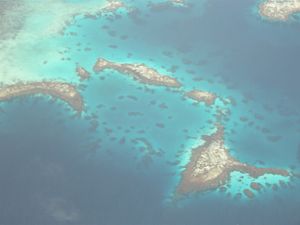This week, the world’s governments will meet in Kigali, Rwanda, to take the most important step so far to combat global warming in the wake of last year’s climate agreement in Paris, now assured of entering into force this year—a remarkable achievement.
In Rwanda, governments will agree to a proposal first put forward by the Federated States of Micronesia (FSM) and Mauritius back in 2009 to amend the Montreal Protocol – which has already done so much to heal the Earth’s protective ozone layer and slow warming – to phase down the manufacture and use of hydrofluorocarbons (HFCs), the world’s fastest-growing greenhouse gases.
Two years earlier Micronesia led successful efforts to accelerate the phase out of hydrochlorofluorocarbons (HCFCs), which had replaced the ozone-destroying, climate-warming chlorofluorocarbons (CFCs) in refrigeration and air conditioning, but still posed some threat to ozone and climate, although not as much as the CFCs. Not content to rest on our laurels, we then pressed on for a phase down on the ozone-friendly but climate-warming HFCs that some companies were starting to use as replacements for HCFCs.
And we were right to do so. Although HFCs do not destroy the ozone, they are up to 4000 times as effective at warming the planet as carbon dioxide. These chemical are growing up to 15 per cent a year, greatly increasing the chances that global warming will exceed 1.5°C, threatening the very existence of small island nations and other vulnerable countries.
Dozens of nations have now followed the lead of FSM and Mauritius by submitting their own proposals for phasing down HFCs, and last year, the parties to the Montreal Protocol agreed to work to finalize an HFC amendment this year.
We are therefore excited for the prospects of a major climate victory next week. However, as we approach Kigali, we must remember that not just any phase down agreement is sufficient. For low-lying islands and other vulnerable nations, the amendment must be ambitious enough to have a real impact on slowing down climate change.
The potential is enormous. An ambitious phase down would prevent emissions equivalent to over 100 billion tonnes of carbon dioxide by 2050, and cut half degree centigrade off global warming by 2100. That would be a massive contribution to meeting the long-term temperature goals included in the Paris Agreement. Indeed, if HFCs are not aggressively phased down, these targets may get out of reach.
Moreover, there are major climate benefits to be gained from an HFC phase down in addition to reducing HFC emissions themselves. Manufacturers can also take advantage of the phasedown to improve the efficiency of refrigerators and air conditioning systems. If they do so effectively, another 100 billion tonnes of carbon dioxide emissions could be avoided, potentially doubling the climate mitigation. That is why FSM has pressed for including provisions in the amendment to offer incentives for choosing energy efficient equipment.
Consensus on the need for such efficiency measures is now growing among the nations due to meet in Kigali – and indeed these could bring many benefits besides limiting climate change, including reducing air pollution, saving nations and households money, and avoiding the need to build hundreds of expensive new power stations.
An ambitious HFC amendment is the low-hanging fruit in measures to reduce global warming. Harvesting it now will increase the confidence to take other challenging measures, and failure to do so would gravely undermine the momentum built up in Paris.
By agreeing to such an amendment and completing the job begun by FSM and Mauritius seven years ago, we will make a significant contribution to climate protection, and we will pass a crucial test of international climate resolve.
This is an opportunity the world cannot afford to miss.
Peter M. Christian is president of the Federated States of Micronesia.

































